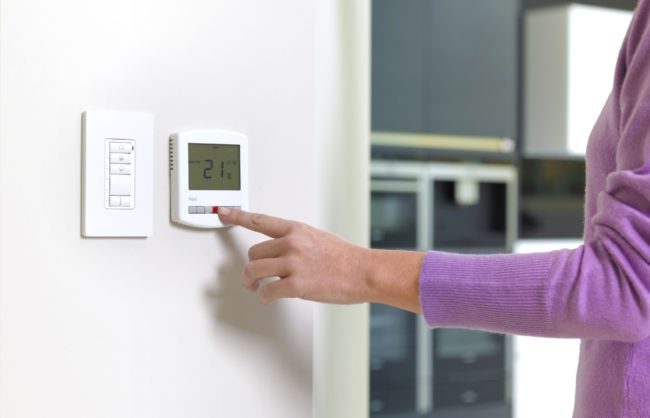Managing Ideal Indoor Humidity For Maximum Comfort

When the temperatures rise, most people reach for the thermostat and turn on the air conditioner. What they may not be aware of, however, is the effect that humidity has on temperature. In fact, high humidity can make your air conditioner have to work harder and can even make it unable to battle rising temperatures effectively. In the winter, air that is too dry is also harder to heat. You can not only save significantly on energy costs but actually drastically increase your air conditioner’s performance by keeping your home at optimal humidity levels.
Overall, optimal humidity levels range between 30-50%. The exact optimal humidity level for you, however, is going to vary based on your own comfort level, the season and the outcomes of maintaining certain humidity levels. In the winter, higher humidity levels are optimal for both comfort and energy efficiency.
However, maintaining optimal humidity levels often leads to condensation on windows, which can even freeze doors and windows shut. In the summer, drier air is easier to keep cool, which leads to greater energy efficiency and helps your AC unit keep your house cooler. When air is too dry, however it can cause a number of other issues just like air that is too humid in the winter. Since adding or detracting moisture from the air is far more energy efficient than heating or cooling the air, getting a humidifier or dehumidifier can have a significant impact on energy costs.

A humidifier adds moisture to the air, while a dehumidifier decreases moisture in the air. If you live in a hot, humid area, you need a dehumidifier. If you live in a hot, dry area, you may need a humidifier to add moisture to the air although in that case it is not so much for energy efficiency as it is for comfort and optimal health.
Humidity has a direct effect on a number of health issues ranging from mild to severe. Mold and mildew thrive in areas of high humidity, which can lead to a number of respiratory problems. People that live in humid areas are more susceptible to fungal infections like athlete’s foot and are more likely to struggle with acne.
When the temperatures rise, our body produces sweat as a means of cooling itself down. When humidity is at 505 or less, this excess moisture evaporates into the air. When the air is too humid to absorb the moisture, however, the sweat simply sits on your body creating an uncomfortable, sticky feeling. When air is too dry, however, it dries out hair, skin and nasal passages which can lead to issues ranging from dry, cracked, flaky skin, psoriasis and even nose bleeds.
If you live in an area that is hot and humid for several months out of the year, you may want to invest in an AC unit that has a built in dehumidifier. Conversely, if you live in a hot, arid area, you may want to invest in a commercial humidifier that will work on its own the same way your heat or AC does. If you live in a small apartment or home, however or an area where humidity is only moderately outside comfort levels, you can invest in a small, portable unit that either humidifies or dehumidifies the air.
Charlie Teschner started MESA Plumbing, Heating, and Cooling in 1982. Charlie has a journeyman and master plumber’s license. He was raised with a strong work ethic and he now applies those values to tasks such as Longmont, CO heating repair.
